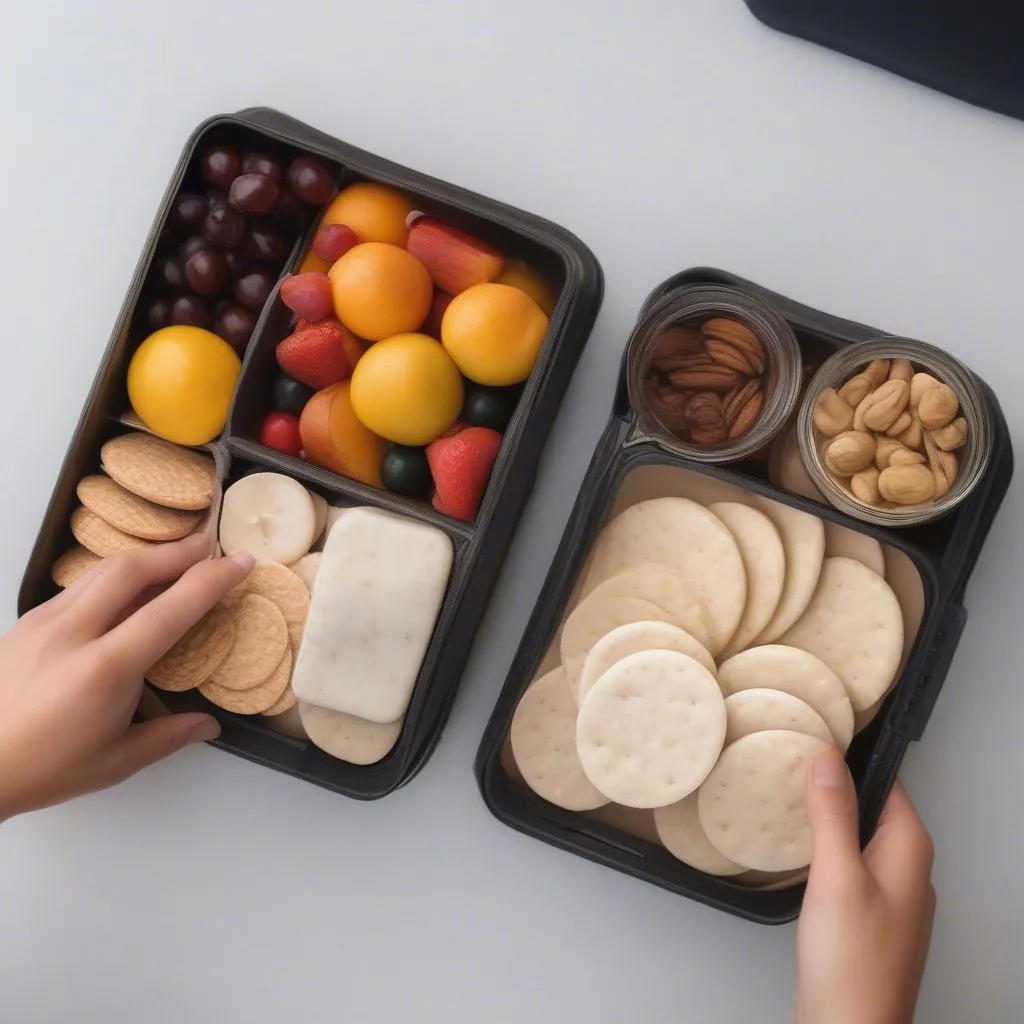Planning a vacation when you have Irritable Bowel Syndrome (IBS) can feel like navigating a minefield of potential triggers. Will the local cuisine wreak havoc on your gut? Will you be stuck on a 10-hour flight with no bathroom breaks? We get it. The fear of a flare-up shouldn’t keep you from exploring the world.
Just ask Sarah, a seasoned traveler who refuses to let IBS dictate her adventures. She once told us about a trip to Vietnam, a country famed for its vibrant street food scene. Despite her IBS, she was determined to experience it all. With careful planning and by following some key strategies (which we’ll delve into shortly), Sarah enjoyed her trip without any major digestive distress.
This guide will provide practical tips and advice to help you travel confidently and comfortably with IBS.
Understanding IBS and Its Triggers
IBS is a common disorder that affects the large intestine. Symptoms can vary but often include cramping, abdominal pain, bloating, gas, diarrhea, and constipation. While the exact cause of IBS is unknown, certain things can trigger symptoms, including:
- Certain foods: Common culprits include fatty foods, dairy products, caffeine, alcohol, and gassy vegetables. However, triggers are highly individual.
- Stress: Travel can be stressful, even if it’s the fun kind of stress.
- Changes in routine: Jet lag, different meal times, and unfamiliar environments can disrupt your digestive system.
Planning Your IBS-Friendly Trip
Choosing Your Destination
While you can travel almost anywhere with a bit of planning, some destinations are naturally more IBS-friendly.
- Consider destinations known for lighter cuisine: The Mediterranean diet, for example, emphasizes fresh vegetables, fruits, fish, and olive oil, which can be easier on digestion.
- Think about accessibility: Will you have easy access to restrooms? Are long travel times between destinations involved?
Booking Your Travel
- Flights: When booking a flight, request an aisle seat for easy bathroom access. Consider a direct flight if possible to avoid additional stress on your system.
- Accommodation: Having access to a kitchen can be invaluable. Consider booking an Airbnb or apartment rental so you can prepare your own meals and have more control over your diet.
Packing for IBS
Medications and Supplements
- Pack your regular IBS medications: Carry enough for your trip plus a few extra days in case of unexpected delays. Keep medications in their original packaging and have a copy of your prescriptions handy.
- Consider over-the-counter remedies: Pack anti-diarrheals, laxatives (if constipation is an issue), and gas relief medications.
- Talk to your doctor about travel-specific medications: They may recommend motion sickness medications or anti-anxiety medications if you are prone to travel-related anxiety.
Food and Drinks
- Pack your own snacks: Airports and rest stops aren’t always havens for healthy, IBS-friendly options. Pack your own snacks like rice cakes, plain crackers, fruit (bananas are good for both diarrhea and constipation), and nuts.
- Stay hydrated: Dehydration can worsen IBS symptoms, so make sure you’re drinking plenty of water, especially when flying.
- Probiotics: Consider taking a probiotic supplement in the weeks leading up to your trip and continuing throughout your travels. Probiotics can help restore a healthy balance of bacteria in your gut.
 Healthy airport snacks for IBS
Healthy airport snacks for IBS
Managing IBS While Traveling
Food and Dining
- Start Slowly with Local Cuisine: Introduce new foods gradually to see how your body reacts.
- Avoid Known Triggers: This one seems obvious, but it can be tricky when you’re faced with a plate of tempting but potentially problematic foods.
- Research Restaurants in Advance: Look for restaurants with IBS-friendly options or that are willing to accommodate dietary restrictions.
Stress Management
- Practice Relaxation Techniques: Deep breathing exercises, meditation, or even listening to calming music can help manage stress levels.
- Build in Downtime: Don’t over-schedule your itinerary. Allow for relaxation and adjust to new time zones.
 Stress management techniques for IBS travelers
Stress management techniques for IBS travelers
What if You Have a Flare-Up While Traveling?
Even with meticulous planning, flare-ups can happen.
- Be prepared: Carry a small “emergency kit” with essentials like wet wipes, a change of clothes, and any medications you might need.
- Don’t be afraid to ask for help: If you’re experiencing severe symptoms, don’t hesitate to seek medical attention.